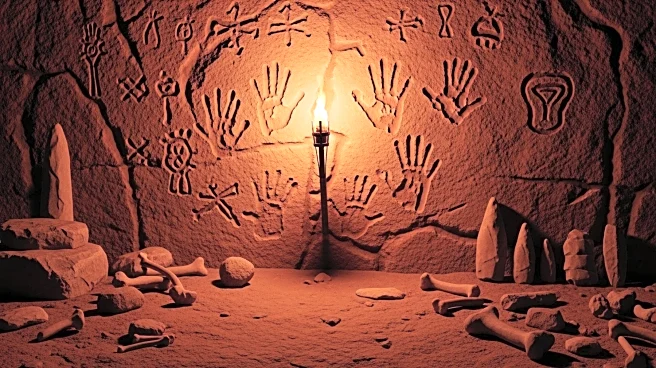What's Happening?
Critical Role, the popular Dungeons & Dragons web series, is taking a more measured approach in adapting its second campaign, The Mighty Nein, into an animated series. This decision comes after feedback that the pacing of their previous adaptation, The Legend
of Vox Machina, suffered due to the compression of complex storylines into limited episodes. The Legend of Vox Machina's second season condensed multiple story arcs into a single season, which led to a rushed narrative. Critical Role CEO Travis Willingham acknowledged this issue, stating that the team is now prioritizing a more deliberate storytelling pace for The Mighty Nein. The adaptation will begin with offscreen sessions that were initially used to help players develop their characters, allowing for a more comprehensive exploration of the campaign's intricate plot.
Why It's Important?
The decision to slow down the adaptation process for The Mighty Nein is significant for fans and the broader entertainment industry. By focusing on a more detailed narrative, Critical Role aims to enhance the viewing experience, potentially setting a new standard for adapting long-form content into television. This approach could influence other creators in the industry to prioritize storytelling depth over rapid content production. For fans, this means a more faithful representation of the beloved campaign, preserving the nuances and character development that made the original series popular. The move also highlights the growing importance of fan feedback in shaping content production strategies.
What's Next?
As Critical Role embarks on this new adaptation journey, fans can expect a more immersive experience with The Mighty Nein. The production team will likely continue to engage with the audience to ensure the series meets expectations. The success of this approach could lead to further adaptations of other campaigns with similar attention to detail. Additionally, the entertainment industry will be watching closely to see if this strategy results in higher viewer satisfaction and engagement, potentially influencing future adaptations of complex narratives.














